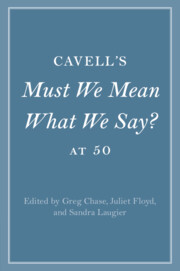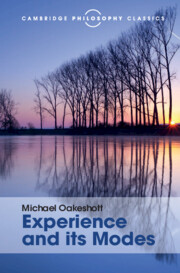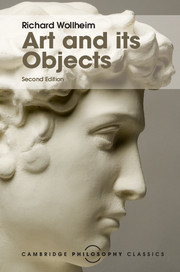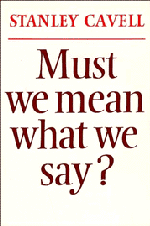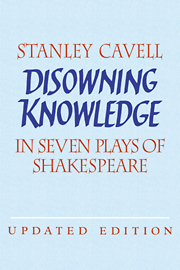Must We Mean What We Say?
In this classic collection of wide-ranging and interdisciplinary essays, Stanley Cavell explores a remarkably broad range of philosophical issues from politics and ethics to the arts and philosophy. The essays explore issues as diverse as the opposing approaches of 'analytic' and 'Continental' philosophy, modernism, Wittgenstein, abstract expressionism and Schoenberg, Shakespeare on human needs, the difficulties of authorship, Kierkegaard and post-Enlightenment religion. Presented in a fresh twenty-first century series livery, and including a specially commissioned preface, written by Stephen Mulhall, illuminating its continuing importance and relevance to philosophical enquiry, this influential work is now available for a new generation of readers.
- Unique to Cambridge, this classic book has been revived and rebranded for a twenty-first-century readership
- Features essays that are wide-ranging and interdisciplinary, from philosophy and literature to music and drama
- Offers Stanley Cavell's fascinating interpretation of 'ordinary language philosophy'
- Features a specially commissioned preface written by Stephen Mulhall
Product details
February 2016Hardback
9781107113633
368 pages
235 × 156 × 25 mm
0.66kg
Available
Table of Contents
- Preface to this edition Stephen Mulhall
- Preface to updated edition of Must We Mean What We Say?
- Foreword. An audience for philosophy
- 1. Must we mean what we say?
- 2. The availability of Wittgenstein's later philosophy
- 3. Aesthetic problems of modern philosophy
- 4. Austin at criticism
- 5. Ending the waiting game: a reading of Beckett's Endgame
- 6. Kierkegaard's On Authority and Revelation
- 7. Music discomposed
- 8. A matter of meaning it
- 9. Knowing and acknowledging
- 10. The avoidance of love: a reading of King Lear
- Thematic index
- Index of names.


